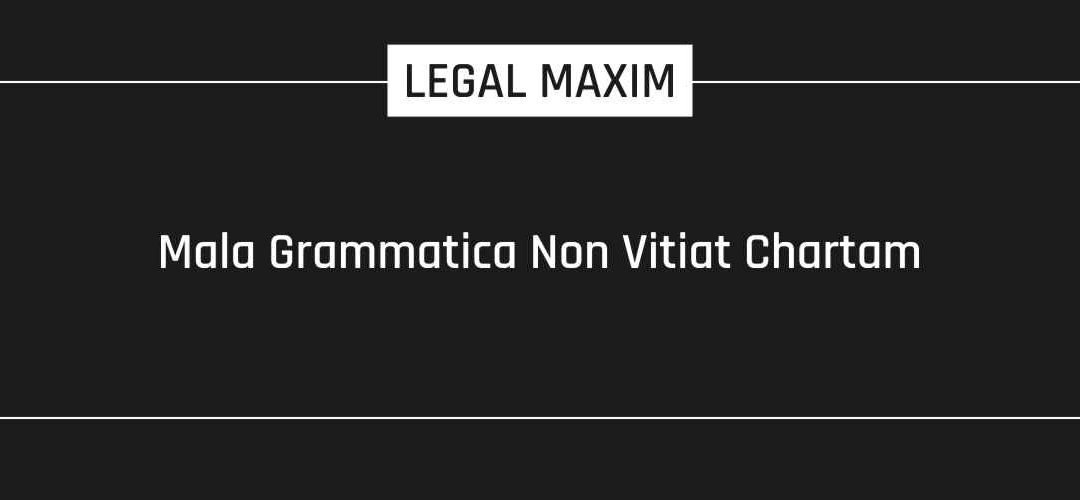Literal Meaning
Bad grammar does not vitiate a deed.
Origin
Latin
Explanation
This legal maxim denotes that a will cannot be invalidated merely based on bad grammar. This maxim is further continued with another maxim ‘Sed in expositione instrumentorem mala grammatica quoad fieri possit evitanda est’ which means that in the exposition of the instruments, bad grammar has to be avoided as far as possible. Courts cannot apply the rule of bad grammar mechanically and disallow a relief to the party.
Case Laws
In V.Baskaran Vs. Manjula, the Madras High Court held that ‘the above maxims (Mala Grammatica Non Vitiat Chartam; Sed in expositione instrumentorem mala grammatica quoad fieri possit evitanda est) would connote and denote that a document has to be interpreted in such a manner to validate it and not to invalidate it, but those maxims blindly cannot be applied in respect of Will.’
In Amitkumar Amichand by Partner S. Mohanlal Vs. Jawanthraj and ors., the Madras High Court held that ‘the law of England respects the effect and substance, of the matter, and not every nicety of form or circumstance. The reason and spirit of cases make law, and not the letter of particular precedents. Hence it is, as we have already seen, a general rule connected with the interpretation of deeds and written instruments, that, where the intention is clear, too minute a stress should not be laid on the strict and precise signification of words. In accordance with this principle, it is a further rule, that the grammatical construction is not always, in the judgment of law, to be followed; and neither false English nor bad Latin makes a deed void when its meaning is apparent. Thus, the word ‘and’ has as already intimated, in certain cases, been read ‘or’ and vice-versa, when this change was rendered necessary by the context.’
